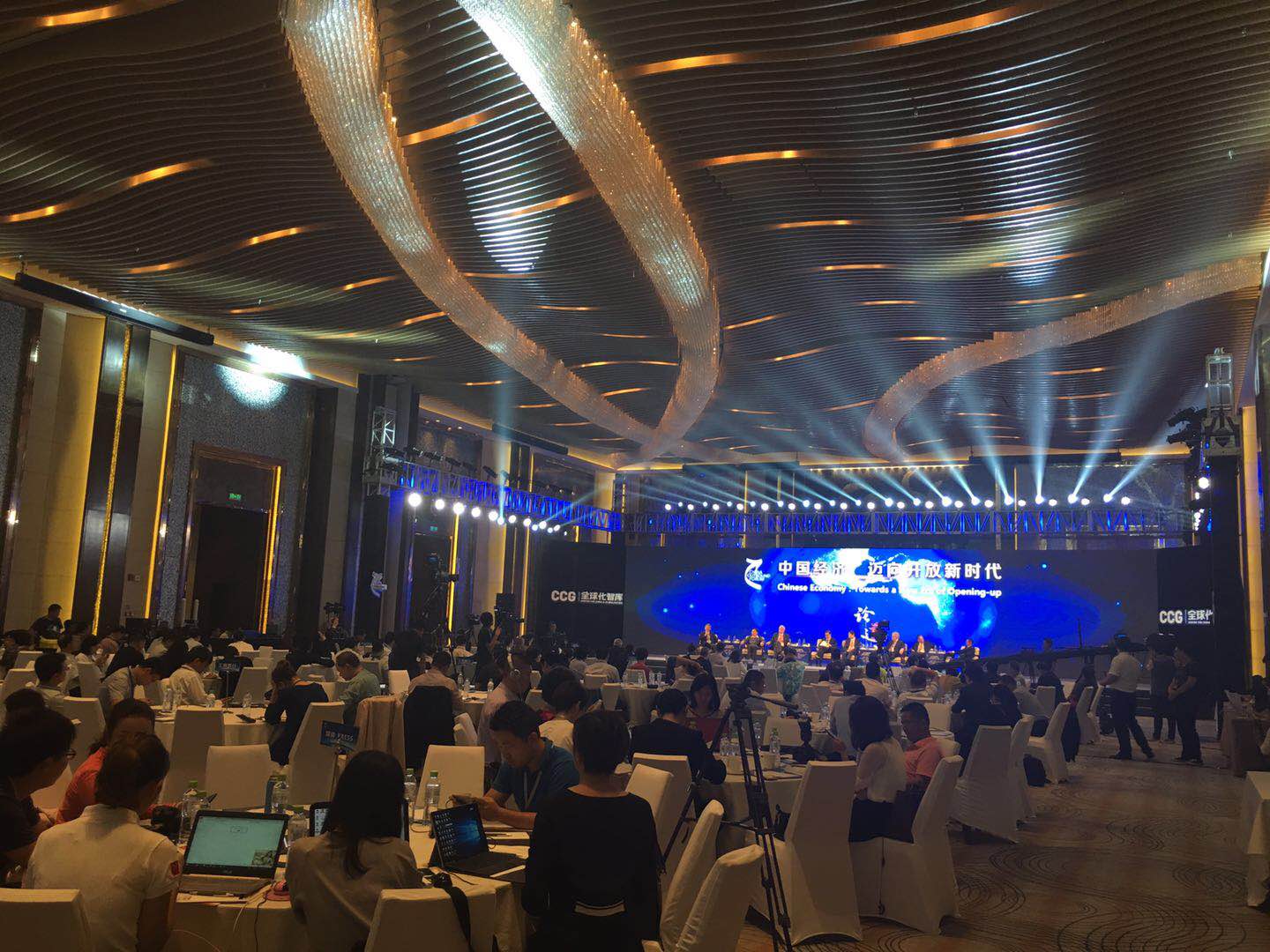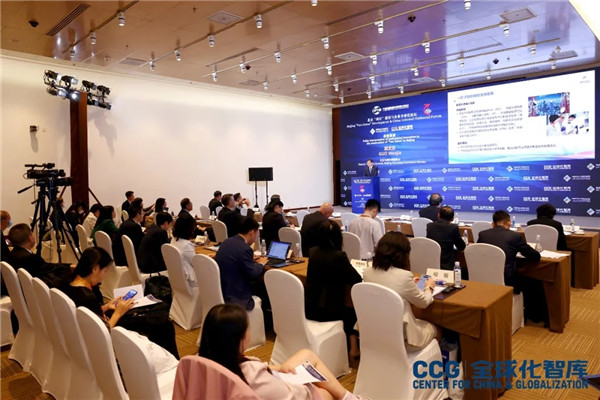Fourth China Outbound Forum Concluded in Success
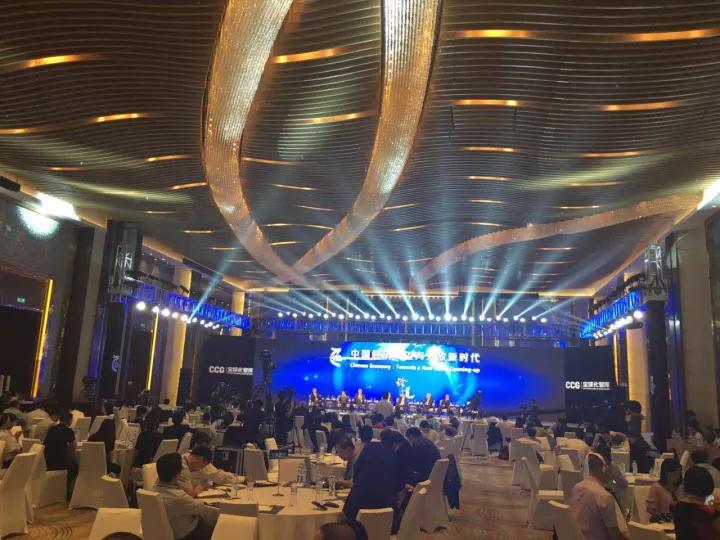
Co-organized by the Center for China and Globalization (CCG), China Association of International Economic Cooperation (CAFIEC) of the Ministry of Commerce and the Sanya government, the 4th China Outbound Forum was successfully held in Sanya, Hainan, on Nov 17-18, 2017. The forum had 13 sessions focused on economic globalization and Chinese enterprises globalization. Over 400 people from the business, politics and academic community in China and around the world attended the forum and over 80 guests shared their insights with the audience. The main theme for the forum this year is pushing forward Chinese enterprises globalization and developing a more open economy in China.
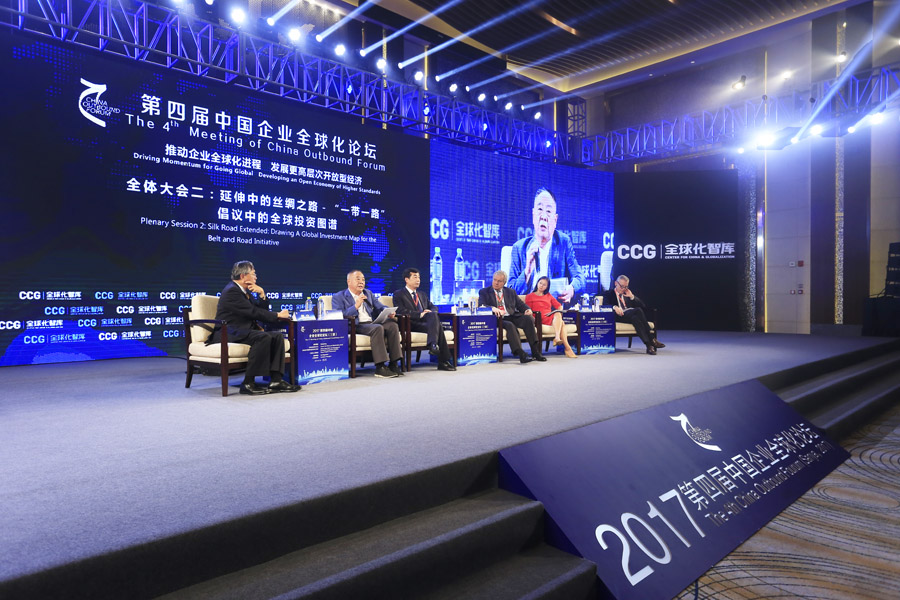
In 2017, Chinese enterprises have made remarkable achievement in global expansion. The 19th CPC National Congress reiterated China’s commitment to economic transition and globalization, while there is a touch issue how Chinese companies can seize the opportunities to accelerate globalization and the “Belt & Road” Initiative and how they can help build a more open economy in China.
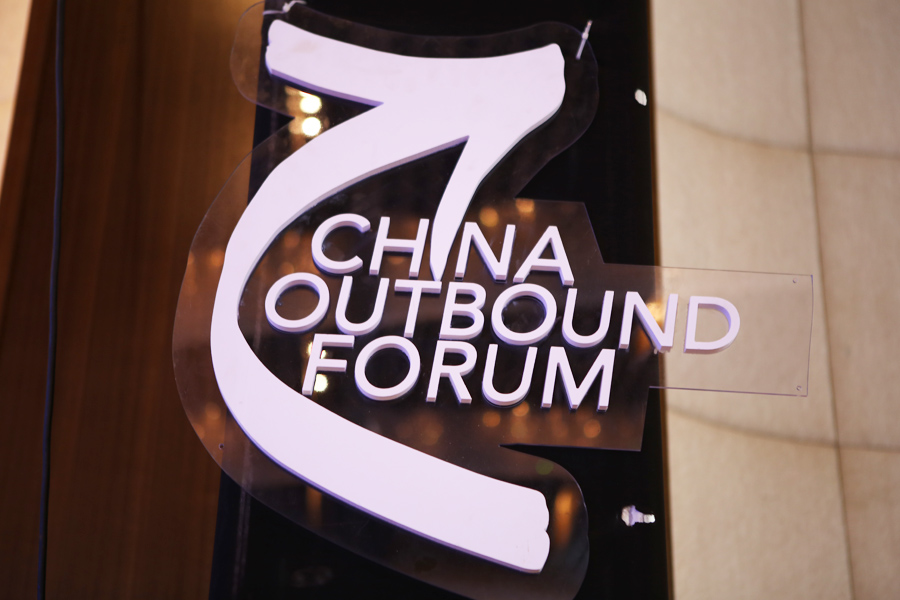
Facing the issue, the forum invited hundreds of business executives, political leaders and academic scholars to explore how the initiatives of the 19th CPC National Congress could be implemented and how foreign investment could play a more significant role in the transition of Chinese economy. The forum presented a lot of insight about China’s and world economic development, current situation of foreign investment in China, and provided viable solutions to solve those issues.
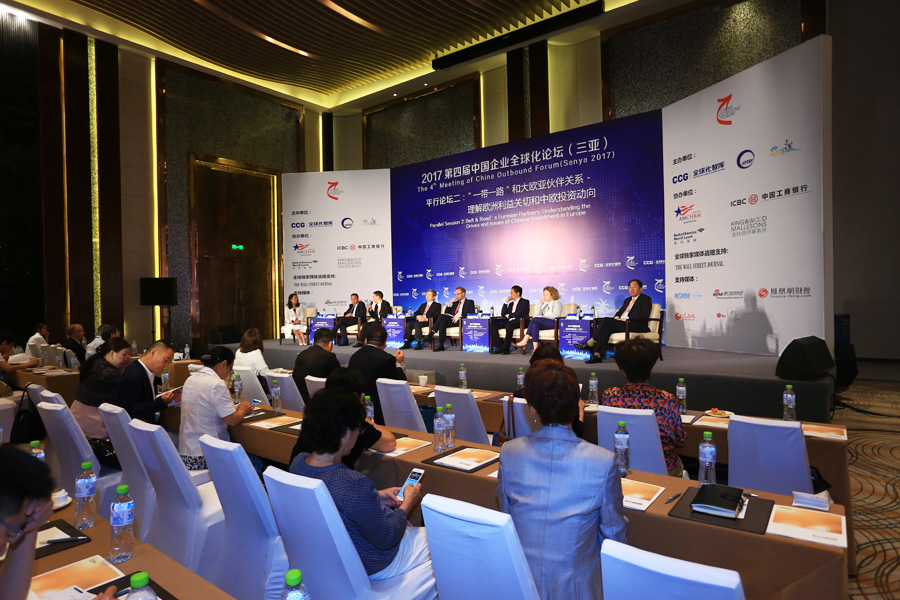
China Outbound Forum is dedicated to becoming a new type of high-level world economic forum
Established in 2014, the China Outbound Forum has by far been successfully held for four consecutive years. With a goal to become a China-based World Economic Forum, it has made its name as the most influential platform for Chinese enterprises going global.
As the 19th CPC National Congress reiterated the importance of “going out” and “bringing in” strategies and the “Belt and Road” Initiative, Chinese companies are currently the most important drivers for China’s globalization. To help Chinese companies overcome the difficulties in going global, the forum this year discussed the new features of globalization.
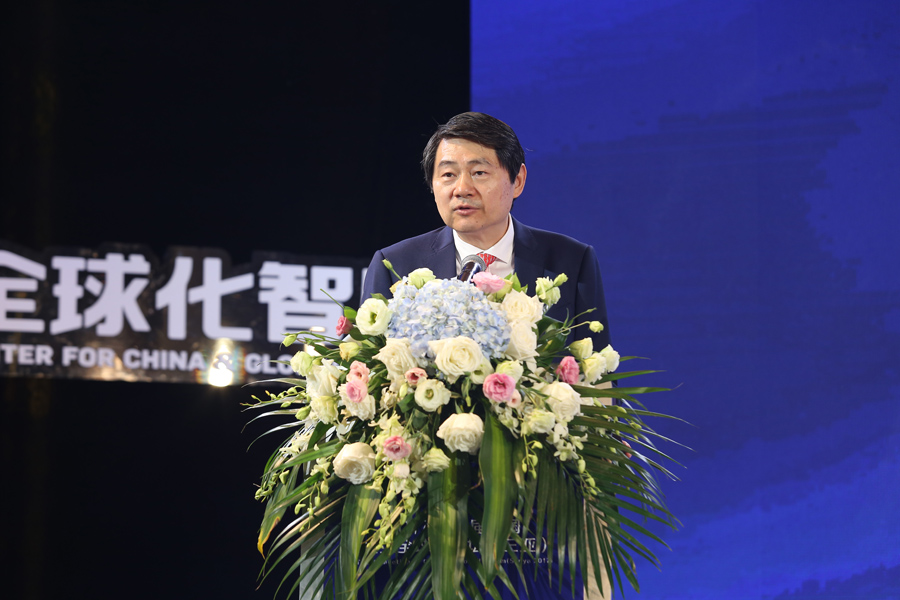
As CCG President Dr. Wang Huiyao pointed out, the Year 2017 is a turning point in the globalization process. China should be more open to globalization and improve Chinese companies’ overseas expansion. At the forum, the diverse opinions offered by guests of different backgrounds provide diversified ways of analyzing and facilitating Chinese enterprises globalization.
In his welcome address, Dr. Wang Huiyao noted that globalization has entered into a new stage. The China Outbound Forum would continue to focus on Chinese enterprises globalization, helping them overcome obstacles and create new impetus.
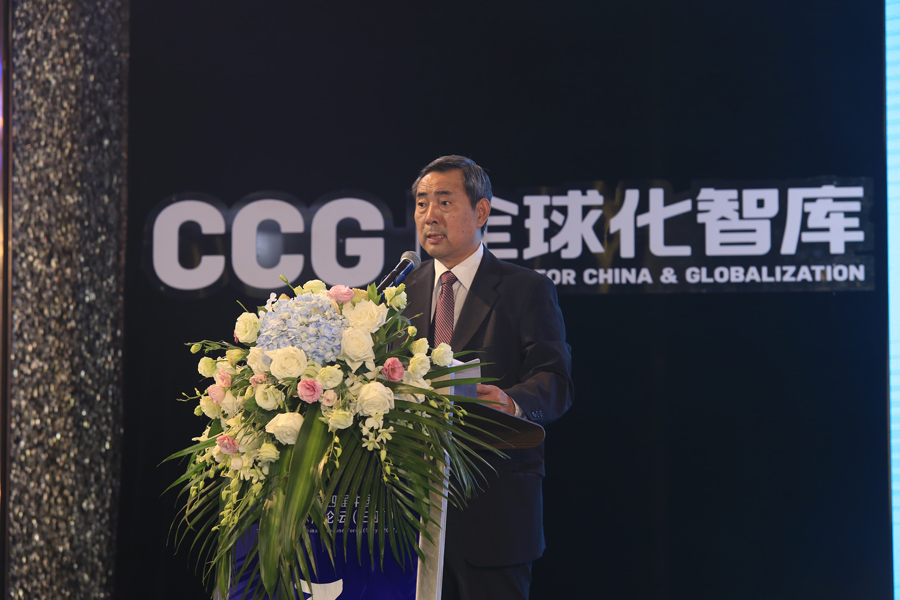
During the welcome session, Guo Yongle, the Vice President of China Association of International Economic Cooperation (CAFIEC) affiliated with the Ministry of Commerce reviewed China’s rapid development in the past 5 years. In the past two years, China’s FDI reached US$1.3 trillion and it has become a net capital exporter. The economic and trade cooperation under the “Belt & Road” Initiative also made great achievement. For the first three quarters of this year, the trade with the Belt and Road countries reached US$789. 5 billion, 15% higher than the same time last year.
Also, the new contracts on infrastructure projects China signed with those countries hit US$ 96.7 billion, rising by 20.7% from the same time last year. The infrastructure cooperation also creates opportunities for Chinese equipment and technology to go abroad.

Chen Jian, the former Vice Minister of the Ministry of Commerce, identified “peace deficit, development deficit and governance deficit” as the biggest challenges facing the entire human kind. The existence of these issues implies that China should always stick to its own principles but adopt flexible measures to counter these challenges in international society.
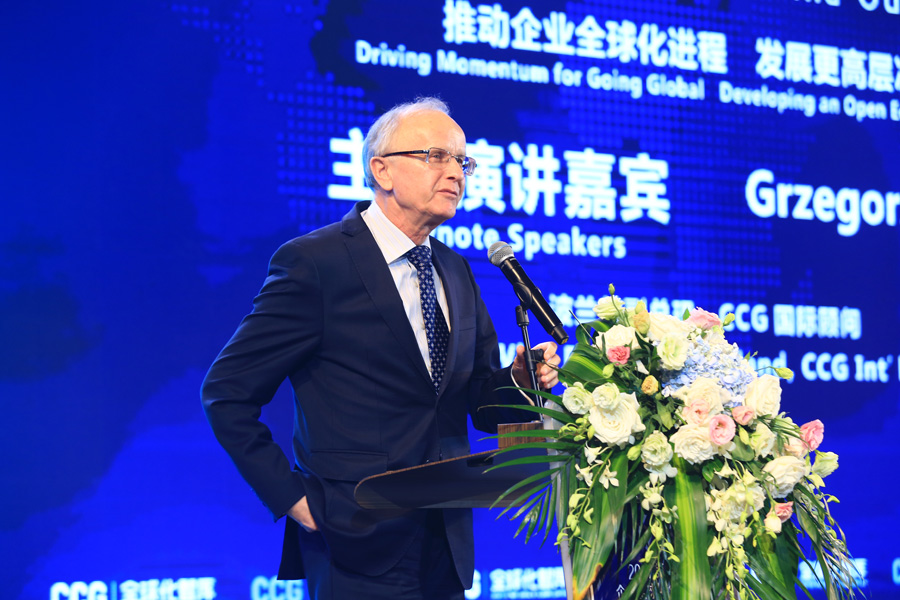
Professor Grzegorz W.Kolodko, the former Premier of Poland, recognized the irreversibility of globalization. It can lead to win-win outcome and should be based on the principles of equality, tolerance and sustainability. So far China has built a closer relationship with East Europe countries. Through the “Belt & Road” Initiative, China could establish a more equal and sustainable relationship with them.
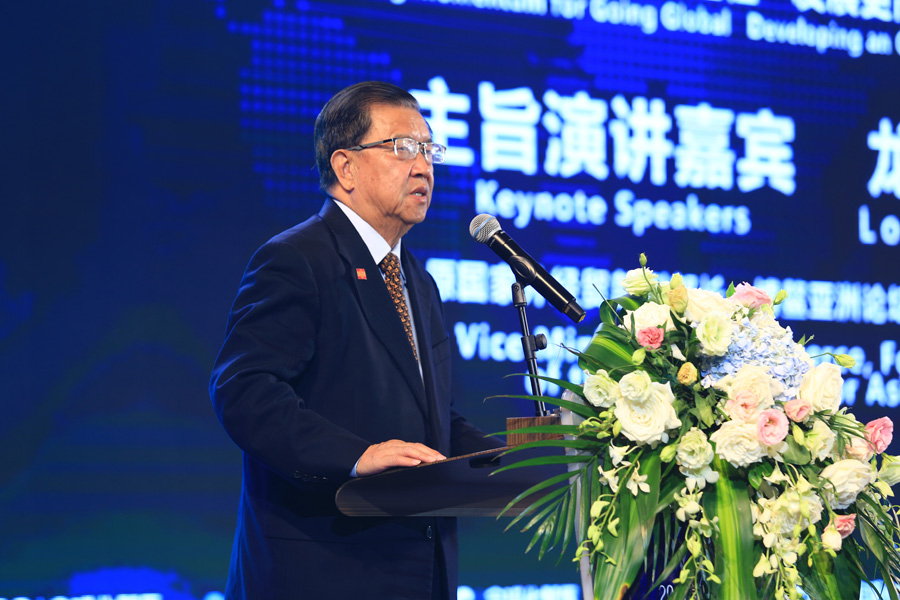
Moreover, Long Yongtu, the former Vice Minister of Commerce, highlighted the fact that Chinese companies would never stop pursing globalization, making it a long-standing topic in the future.
The 13 sessions offered insight about world economy and explored new opportunities for foreign investment
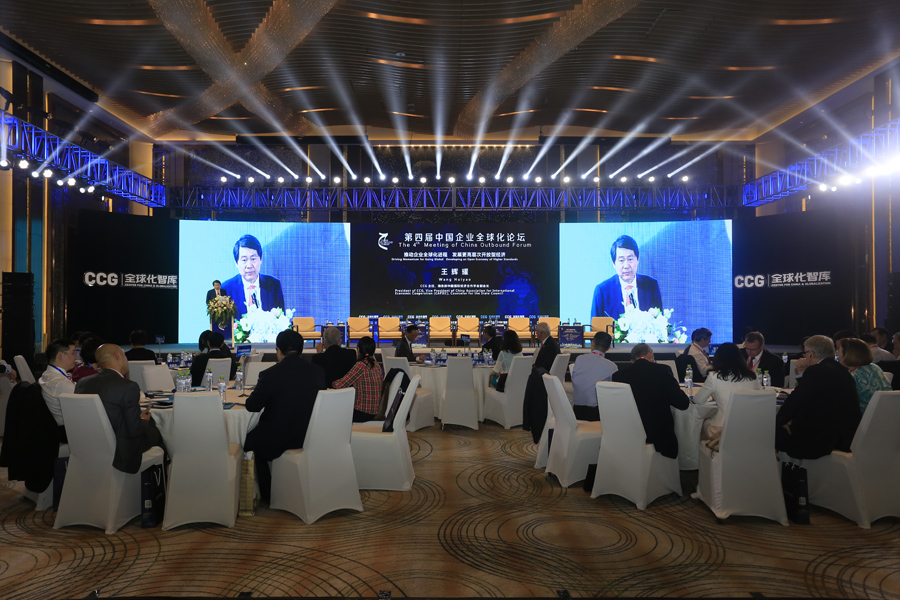
As the world economic development slowed down and global investment declines, Chinese companies still maintain unprecedentedly strong momentum in globalization in 2016 with their foreign investment at a record high level of US$ 183 billion, which is 44% higher than last year, making China the second largest country in the world in terms of foreign investment. More specifically, for two years, China’s investment in America outnumbered that of America in China. Therefore, the forum was more concentrated on the new era of reform and opening up after the 19th CPC National Congress, striving to identify how foreign investment could be the new force in driving China’s economic transition and what new opportunities will be presented to Chinese companies in their global expansion.
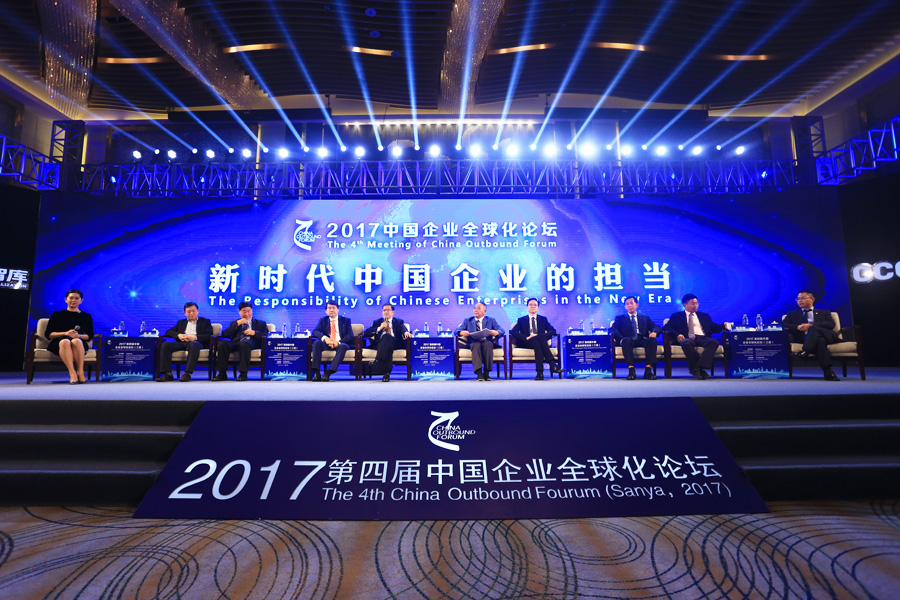
The opening panel is about the “Belt & Road” Initiative and Chinese companies’ responsibility. Previously, President Xi promised at the 2017 World Economic Forum that China will take a lead in economic globalization and the “Belt & Road” Initiative would become the new driver for global economy. During the panel discussion, many entrepreneurs shared their opinion about their approach to cope with economic transition, their missions and experience in working together with foreign companies.
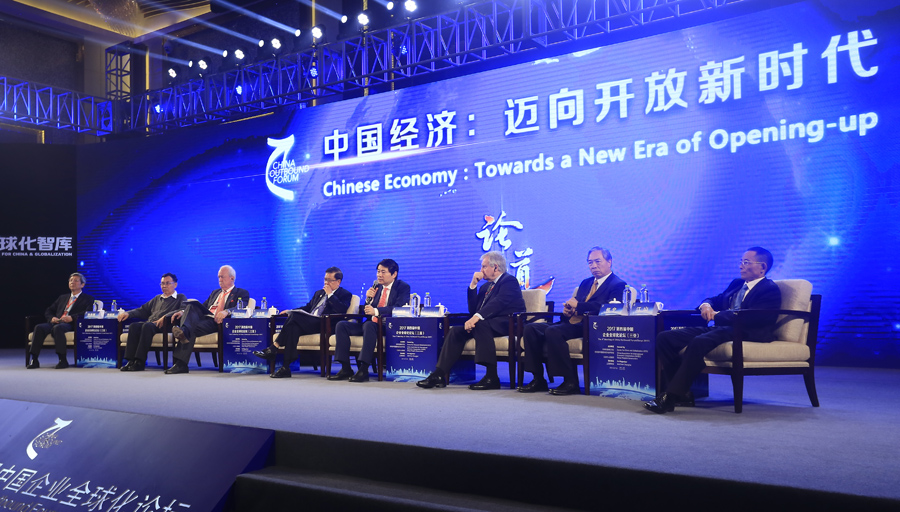
The 1st plenary session was hosted by Long Yongtu, the former Vice Minister of Commerce. The guest speakers shared their views about China’s economy after the 19th CPC National Congress.
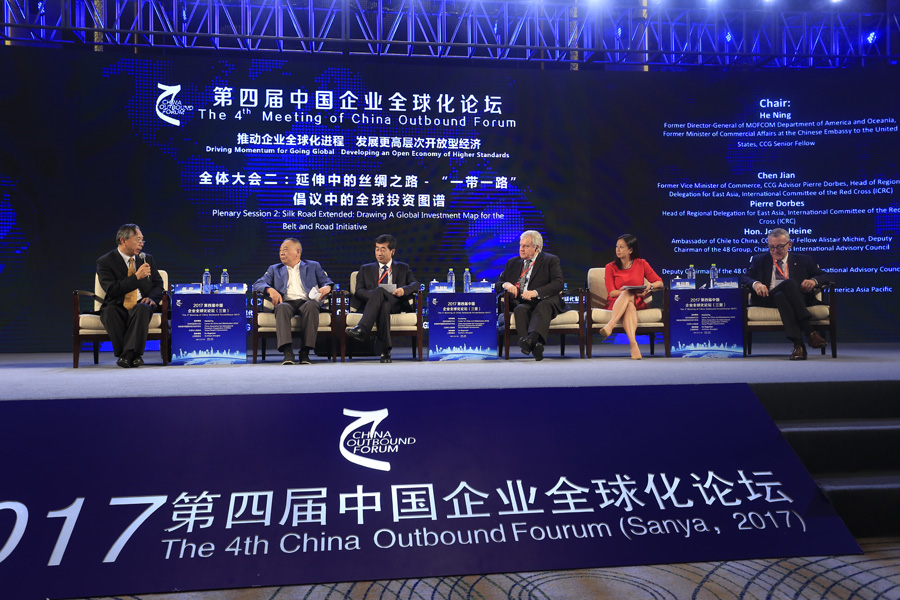
The plenary session 2 shed light on the “Belt & Road” Initiative, discussing the issues such as how the Chinese government should cooperate with private sector in the “Belt & Road” Initiative, how foreign companies may perceive and participate in the initiative and how to evaluate different types of investment, etc.
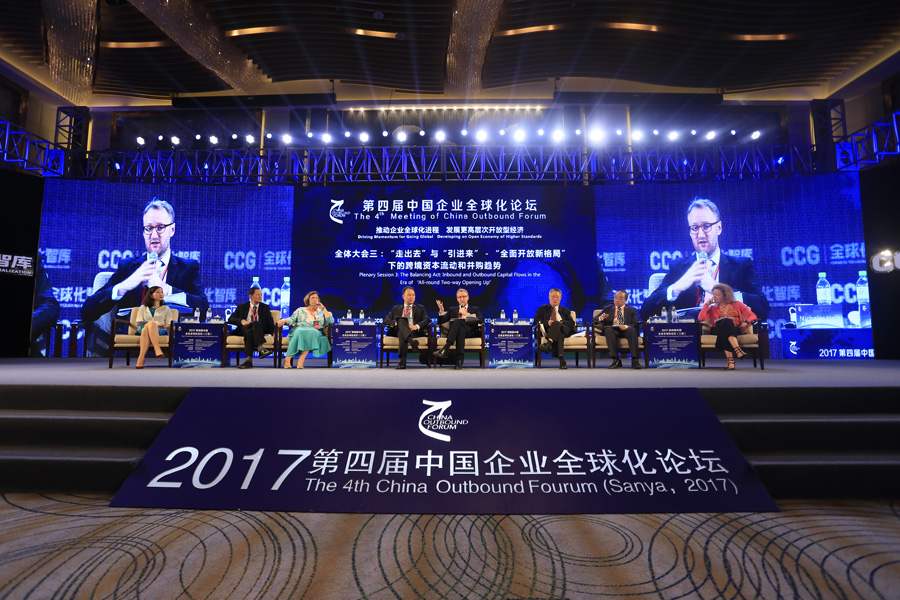
The plenary session 3 was hosted by Miao Lu, the Secretary-General of CCG. It cast light on the trends of merge and acquisition and the cross-border capital flow in the new era of economy. The rapid development of Chinese economy creates plenty of opportunities for multinational companies to invest China and the two-way capital flow would have a positive impact on Chinese enterprises globalization. Therefore, Chinese companies should now make effort to optimize the use of their global resource.
The plenary session 4 forecast the world economy outlooks in 2018 and the potential challenges and opportunities for Chinese companies to make outbound investment. Ignited by populism, the wave of anti-globalization has been rising since 2017 and the obstacles to trade and investment increased. Foreseeing the difficulties of Chinese companies in globalization caused by these factors, the guests explored the new ways for Chinese companies to work together to tap the potential.
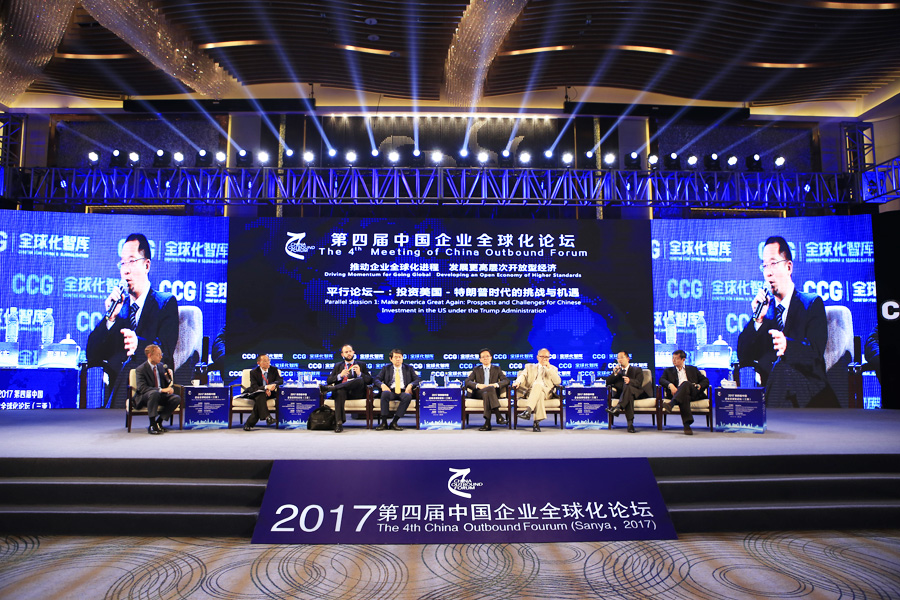
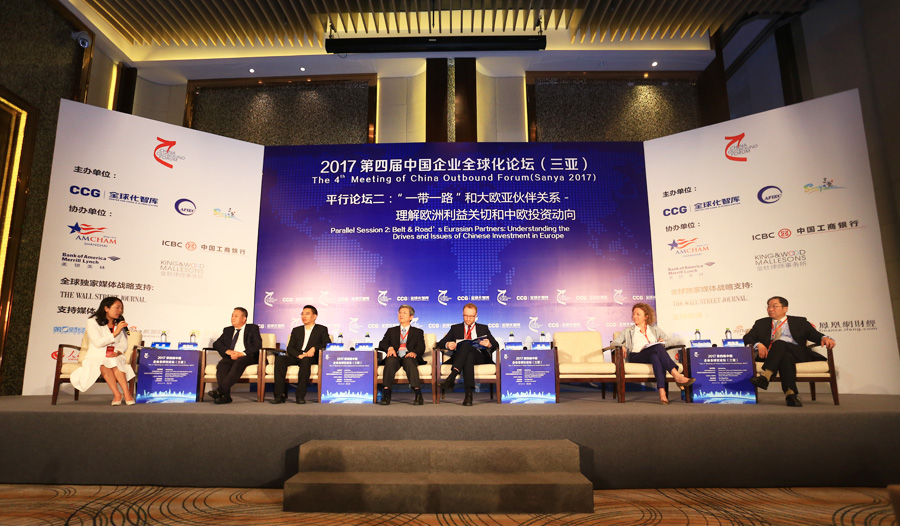
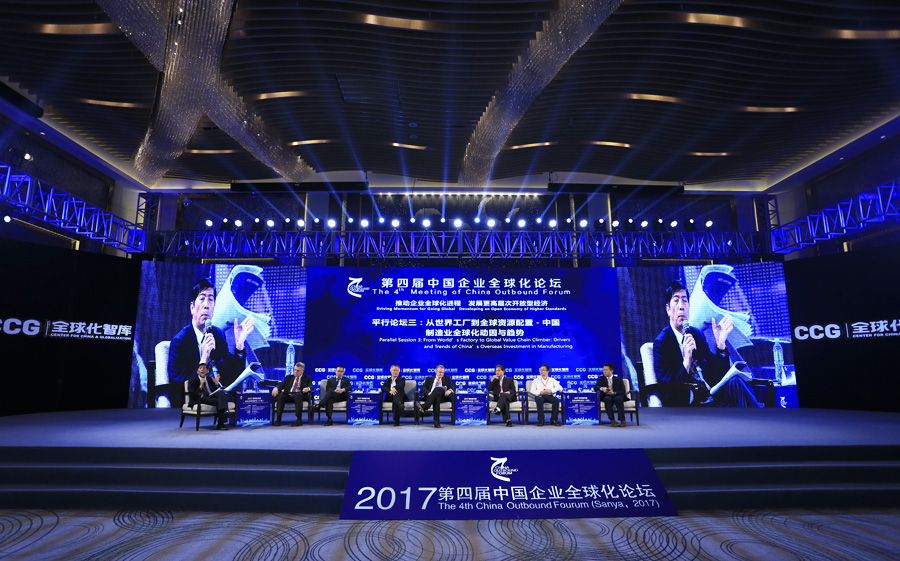
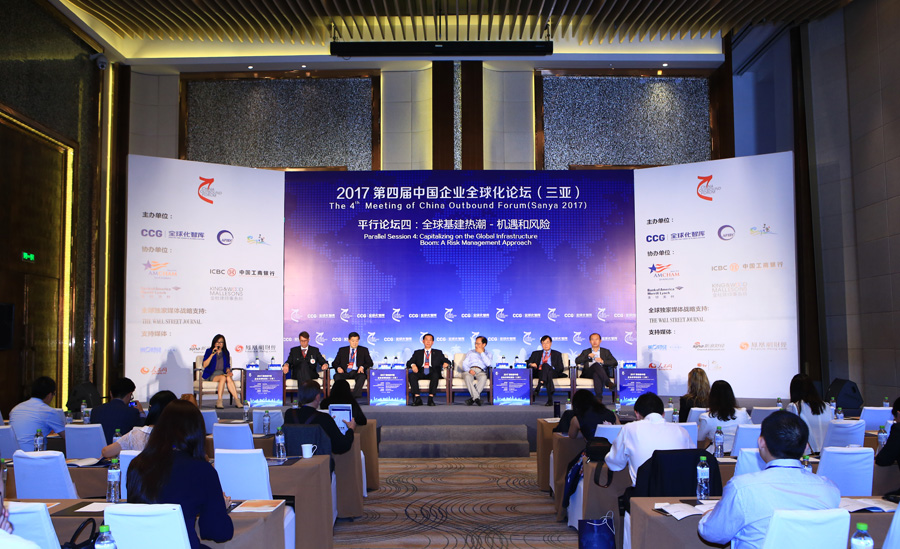
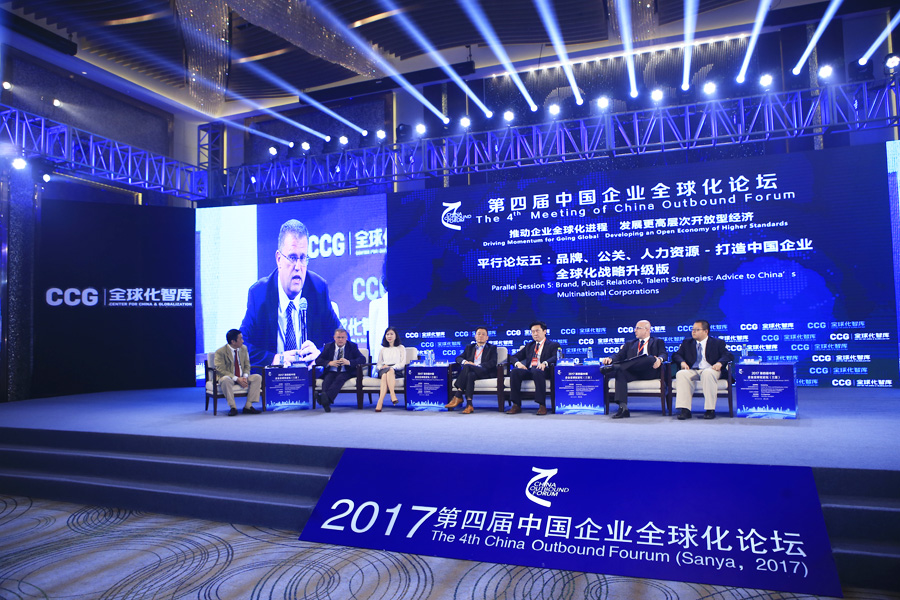
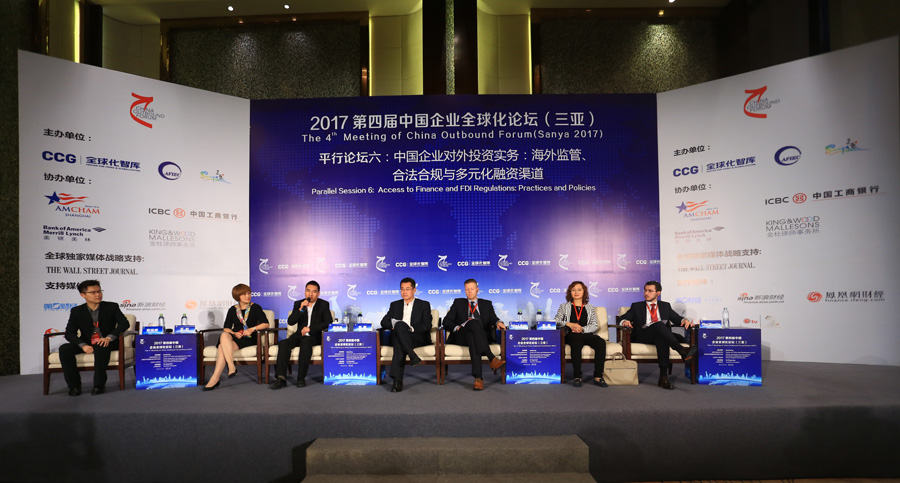
On Nov. 18, another six sessions were organized surrounding the most significant issues in Chinese companies’ foreign investment. The first one was on the prospects and challenges for Chinese Investment in the US under the Trump Administration. The second was focused on China- Europe economic relations, examining the drivers and issues of Chinese Investment in Europe. During the third session, guests exchanged their opinions about the trend of China’s outbound investment in manufacturing industry. The fourth session shifted its focus to the approaches to risk management. The fifth was concentrated on brand strategies. The final session discussed how companies could gain access to financial services and how they should respond to FDI regulations.
Many prominent experts from business, academic and political circle on innovation and investment were invited to the luncheon panel to discuss Chinese companies’ role in the global tech race. With internet technology development, China has been pioneering in shared economy, electronic payment and financial technology and in the areas of artificial intelligence, autonomous vehicles and biomedical research. To ensure the sustainable development, the guests explored the ways to technology globalization and how they can employ global resources to boost innovation.

Awarding of “2017 Top 50 Chinese Companies Going Global” for their contributions to Chinese companies going global
On the night of Nov 17, the forum organized an awarding ceremony to recognize the contributions of Chinese companies to globalization. Based on CCG’s self-established metrics and case studies, 50 companies were selected as the “2017 Top 50 Chinese Companies Going Global”, and another 50 companies were included in the list of the “Top 50 Emerging Chinese Companies Going Global”. In addition, some companies were awarded “2017 Top Chinese Companies for Brand Strategy” and “2017 Top Chinese Companies for Outstanding Contribution to Globalization”.
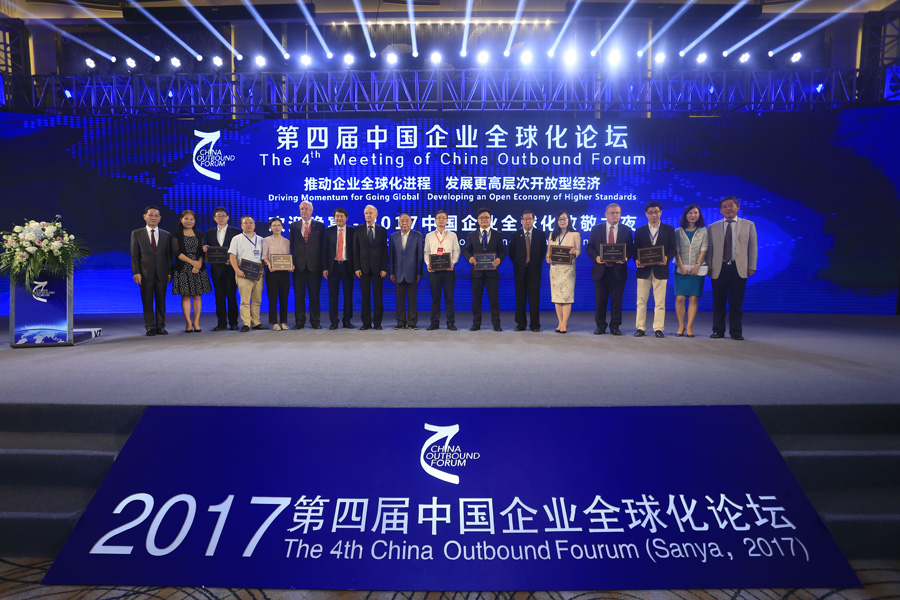
Mr. Li Baiqing, the former Vice Mayor of Sanya, addressed at the ceremony. The presenters included:
- Long Yongtu, the former Vice Minister of Commerce;
- Chen Jian, the former Vice Minister of the Ministry of Commerce;
- Grzegorz W. Kolodko, the global consultant of CCG;
- Wang Huiyao, the President of CCG;
- Li Jiping, the Vice Executive President of China Association for the Promotion of Development Financing;
- Xu Zhenling, the Vice Mayor of Sanya;
- Li Baiqing, the Executive Director of Hainan Golden Eagle Peace Development Foundation and the former Vice Mayor of Sanya.
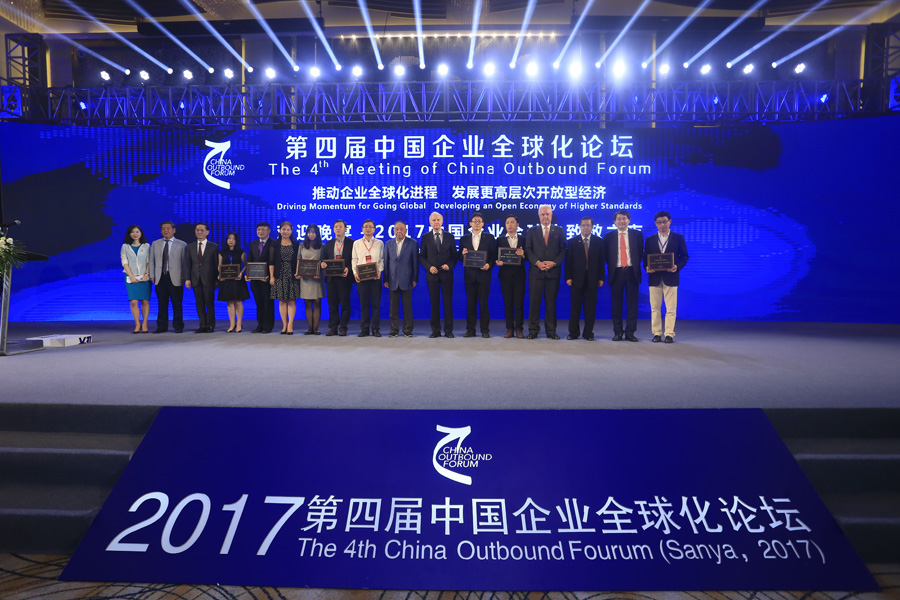
The partial list of the representatives of companies who attended the ceremony and received awards is as follows:
- David Harmon, the Vice Director of Global Government and Public Affairs of Huawe;
- Li Xinhua, the Vice President of China National Building Materials Group Corporation;
- Qiao Kai, the Executive Vice President of Hengkang Medical Group Inc;
- Wang Xin, the Vice President of DIDICHUXING.
Additionally, the senior officials of Midea Group, HBIS Group, ZTE Corporation, SanPower Group, Vanlead Group and Tianhai Investment also attended the ceremony.
